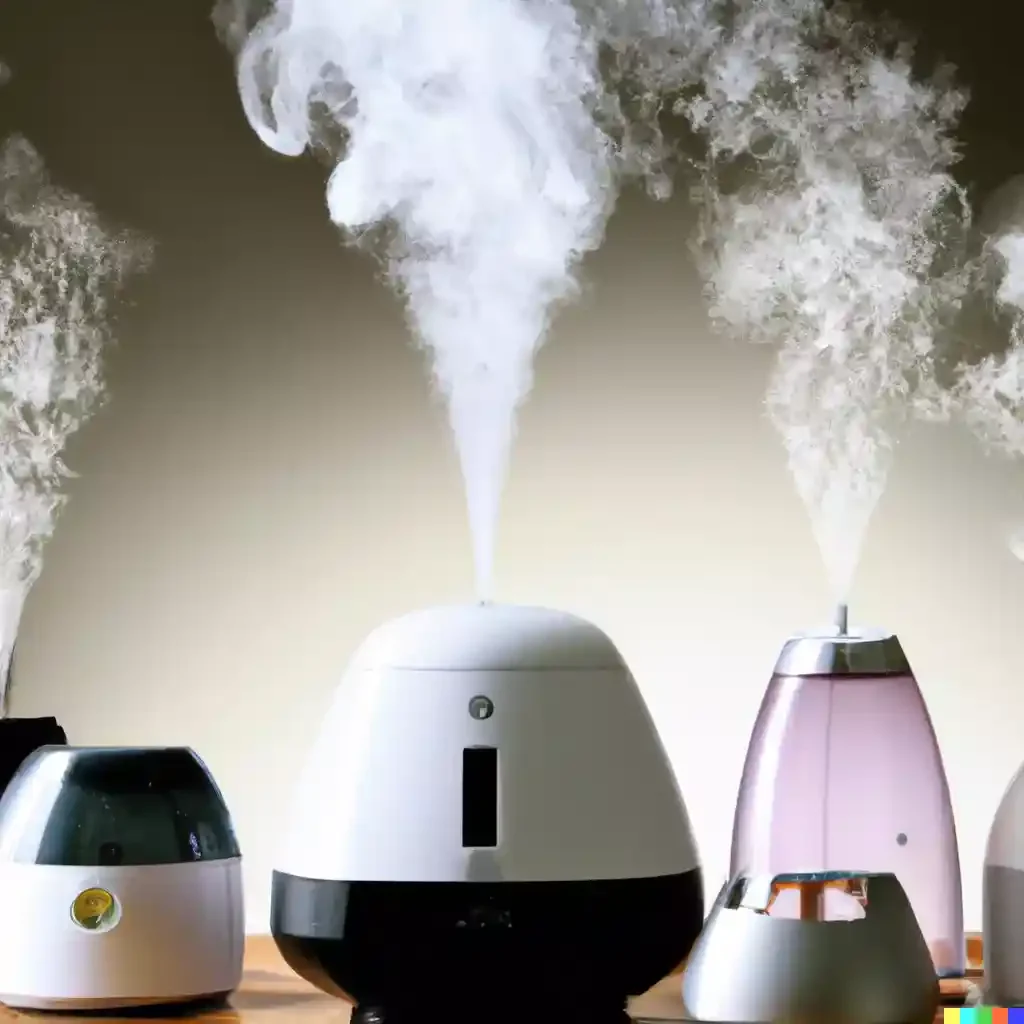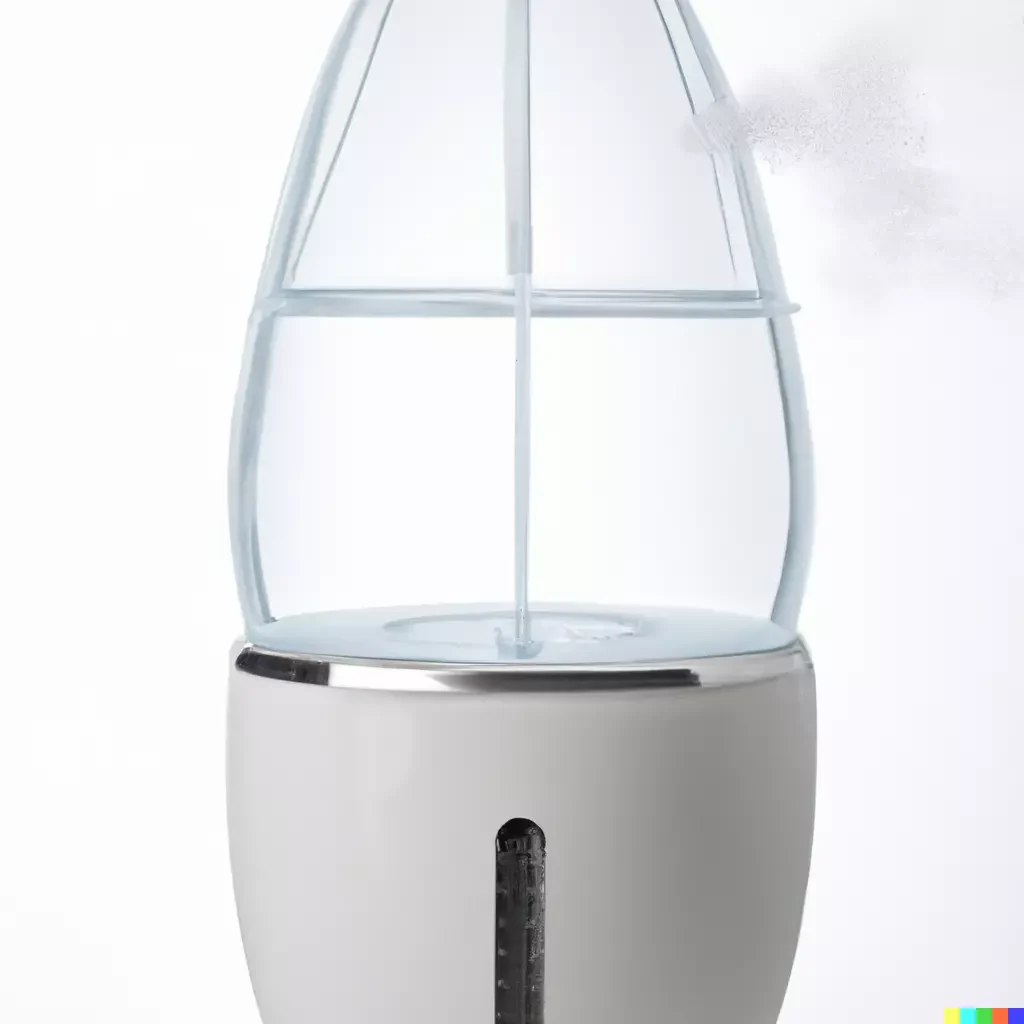Humidifiers are commonly used in winter to add moisture to dry indoor air. In summer, they are less frequently used due to the naturally higher humidity.
Dry indoor air during winter months can lead to various discomforts like dry skin, irritation in the respiratory tract, and aggravated allergy symptoms. This is where humidifiers play a crucial role, by emitting water vapor to increase the humidity levels in your home, they can alleviate these issues and contribute to better indoor comfort.
Conversely, summer air is often already heavy with moisture, so using a humidifier is generally less common. However, in particularly dry climates or in air-conditioned spaces where the air can become excessively dry, a humidifier might still be beneficial during the summer. Keeping indoor humidity levels balanced is essential for comfort and health, regardless of the season.
Humidifier Seasonal Uses Explained
Understanding when to use a humidifier can greatly enhance the comfort and health of your home environment. As seasons change, the humidity levels indoors can fluctuate, affecting everything from your skin to your furnishings. Whether it’s the dry, cold months of winter or the hot, sometimes arid days of summer, knowing the right time to utilize a humidifier is key. Let’s explore how a humidifier can be beneficial in each season and what considerations should be taken into account.
Importance Of Regulating Humidity
Regulating humidity is crucial for maintaining a comfortable and healthy living space. Ideal indoor humidity levels should range between 30-50%, according to the Environmental Protection Agency. Outside this range, you may experience various issues, including health problems, damage to your home, and general discomfort.
- Winter: Dry air can lead to irritated skin, respiratory issues, and static electricity. It can also cause wooden furniture and musical instruments to crack.
- Summer: Although humidity tends to be higher, air conditioning can strip the air of moisture, leading to similar problems as those in winter.
Health And Comfort Considerations
The role of humidifiers extends beyond just balancing moisture; they directly impact your well-being. During winter, a humidifier combats the harsh, dry air that can aggravate conditions such as asthma and allergies, while also helping to prevent colds and flu by maintaining healthy mucous membranes. In the summer, it provides relief from dry air conditioned environments, ensuring your respiratory system isn’t dried out, and your skin stays hydrated.
Impact On Indoor Air Quality
Maintaining proper humidity levels is essential in safeguarding indoor air quality. Excess moisture can encourage the growth of mold, bacteria, and dust mites, while too little can allow airborne viruses to thrive. A humidifier, used wisely, can maintain optimal conditions to prevent these extremes.
| Season | Reason for Use | Benefits |
|---|---|---|
| Winter | Dry outdoor air and heating systems | Prevents dry skin, static, and respiratory issues |
| Summer | Air conditioning dehumidifying the air | Maintains moisture for comfort and health |
Winter Humidifying Benefits
As the mercury dips and the heaters come to life, maintaining indoor air quality becomes pivotal. Many underestimate the power of a humidifier during the winter months. Not only does it play a crucial role in promoting health and comfort, but it also safeguards your home. Let’s delve into how it can transform your wintertime experience.
Combatting Dry Winter Air
During winter, low humidity levels often lead to a drop in indoor air moisture. This can result in unpleasant symptoms such as irritated sinuses, dry coughs, and itchy eyes. Introducing a humidifier restores the balance, creating a comfortable living environment and alleviating these discomforts.
Preventing Static And Dry Skin
If you’ve ever experienced a sudden jolt from a static shock or felt the tightness of dry skin in winter, you’re not alone. These are clear signs of low humidity. A humidifier adds necessary moisture back into the air, reducing static electricity and helping to keep skin moisturized and supple.
Protecting Wooden Furniture And Floors
Just like your skin, wood is also sensitive to the moisture levels in your home. Dry air can lead to warping, cracking, or splitting in your cherished wooden furnishings and hardwood floors. Using a humidifier can preserve the integrity of these items, extending their lifespan and maintaining a pristine appearance.
Summer Humidifier Applications
As the mercury rises and the days become longer, the use of humidifiers might not be the first thing that comes to mind. Yet, these handy devices play a crucial role in maintaining indoor comfort and health throughout the sultry summer months. Summer brings a unique set of challenges that can be managed effectively with a humidifier. In this section, we explore the key applications for employing a humidifier during the summer season to enhance your living space.
Air conditioning and humidity levelsAir Conditioning And Humidity Levels
The relentless work of air conditioners in keeping our homes cool also has the side effect of stripping the air of its natural moisture. Low humidity levels can lead to dry skin, irritated sinuses, and uncomfortable dryness in the airways. A humidifier reintroduces the necessary moisture back into your habitat, creating a balanced indoor climate and preventing the negative side effects of overly dry air.
Managing summer allergensManaging Summer Allergens
- Summer blooms and warm winds often usher in unwelcome allergens into our homes.
- By maintaining optimal humidity levels, humidifiers can help keep airways moist and more resistant to allergens.
- Moisture in the air can help trap pollen and dust, preventing it from circulating freely in your living space.
Enhancing Sleep During Hot Months
Quality sleep can be elusive when temperatures spike. Stuffiness and heat create a restless environment that can interfere with our sleep patterns. Integrating a humidifier into your bedroom can help by:
- Regulating the room’s humidity for better breathing conditions.
- Reducing snoring caused by dry throat and nasal passages.
- Providing a cooler sensation on the skin by promoting a more moist and comfortable atmosphere.
Optimal Humidity In Summer
As temperatures rise during the summer months, so does the importance of maintaining optimal humidity levels in your home. Not only does proper humidity affect your personal comfort, but it also plays a critical role in the health of your indoor environment. Striking the right balance can help in avoiding issues associated with too much moisture, such as mold growth and exacerbation of allergies. Let’s explore how to manage humidity effectively during the heat of summer.
Dealing With High Humidity And Ac
Air conditioning systems are a staple in managing indoor temperatures during summer. However, they do much more than just cool the air; they also play an essential role in controlling indoor humidity. A well-functioning AC system removes moisture from the air, creating a more comfortable living space.
- Regular maintenance of your AC unit ensures it operates efficiently.
- Using a thermostat with a humidity control feature can allow for better regulation.
- Keep windows and doors closed while AC is running to prevent excess humidity from entering.
Proper utilization of your air conditioning can pull double duty—keeping you cool while reducing the sticky discomfort associated with high humidity.
When To Use A Dehumidifier Instead
There are instances when the humidity levels are high, but temperatures are not, rendering your AC less effective at moisture control. This is when a dehumidifier becomes essential. By extracting water from the air, dehumidifiers help in:
- Maintaining a consistent relative humidity level, ideally between 30% and 50%.
- Reducing the potential for mold and mildew growth.
- Improving air quality for people with respiratory issues or allergies.
Use a dehumidifier alongside your AC for maximum comfort and air quality, particularly in humid climates or during rainy summer days. Keeping tabs on your indoor humidity levels with a hygrometer can guide your decisions and help maintain an ideal atmosphere.
Do You Use Humidifier In Winter Or Summer?
Deciding on whether to use a humidifier during the colder climes of winter or throughout the summer’s heat can leave many scratching their heads. Humidifiers play a critical role in maintaining indoor air quality, but the seasons can drastically change our indoor air needs. Understanding the nuances of using a humidifier through the year’s extremes is key to sustaining comfortable and healthy living spaces.
Different Needs For Each Season
Winter often heralds the onset of dry air due to heating systems which can lead to several health issues like dry skin, irritated sinuses, and aggravated respiratory conditions. Humidifiers in winter inject moisture back into the air, creating a more comfortable environment and potentially reducing the risk of infections.
In summer, on the other hand, the air can sometimes be excessively humid, but this is not always the case, especially in arid regions. Air conditioning can strip the air of moisture, making humidifiers beneficial in maintaining optimal humidity levels that prevent dehydrated skin and ensure that our respiratory system functions properly.
- Winter concerns: Viruses thrive, dry air, static electricity, discomfort.
- Summer concerns: Inconsistent humidity, air conditioning dryness, allergens.
Factors To Determine The Right Time
Measuring your indoor humidity levels should be your first course of action. The ideal indoor humidity level should hover between 30-50%. Below 30% and you’re in the danger zone of dryness, while above 50% fosters a breeding ground for unwanted allergens like dust mites and mold.
| Factor | Winter Use | Summer Use |
|---|---|---|
| Indoor Humidity | Often Low | Varies |
| Health Conditions | Helpful for dry skin, sinuses | Relief for AC-caused dryness |
| Home Heating/AC | Furnaces reduce humidity | AC can over-dry air |
Personal Preferences And Regional Climate
Not all regions are created equal when it comes to humidity levels. The desert Southwest experiences vastly different atmospheric moisture compared to the Southeast’s swampy conditions. Your location might dictate the necessity of a humidifier in either summer or winter, or maybe throughout the year.
Personal comfort also takes precedence. Some individuals prefer a more arid environment, while others thrive in a moist atmosphere. It’s important to tailor humidity levels to personal needs while still adhering to health guidelines. This ensures your living space is not only comfortable but also fosters well-being.
- Monitor indoor humidity with hygrometers.
- Adjust humidifier settings to achieve the ideal range.
- Account for health conditions that may be impacted by humidity.
- Consider local climate patterns and seasonality.
:max_bytes(150000):strip_icc()/best-selling-cooling-essentials-tout-d36ff80875fc4cdc910480b4aa735d4a.jpg)
Credit: www.realsimple.com
Uncover The Best Season For Humidity Control
When thinking about indoor climate control, the importance of humidity often takes the backseat to temperature. But maintaining the right level of humidity year-round is crucial for comfort and health. While some people might assume humidifiers are only useful during dry winter months, others swear by their benefits during the oppressive heat of summer. Determining the best season for humidity control can be confusing, so let’s dive in to understand when and why a humidifier can be beneficial.
Analyzing Weather Patterns And Home Environment
Weather patterns and your home’s environment play significant roles in determining the need for a humidifier. The following are key factors to consider:
- Dry winter air can lead to moisture loss from the body, causing discomfort such as dry skin, throat irritations, and itchy eyes.
- In contrast, the summer may bring about higher humidity levels, but air conditioning can strip indoor air of moisture.
- Your home’s heating system in winter can also reduce indoor humidity, making the air feel cooler than it actually is.
- Geographic location affects outdoor humidity levels and should influence your approach to indoor humidity control.
Understanding The Benefits In Each Season
Both summer and winter seasons bring unique challenges to maintaining optimal indoor humidity levels. Benefits of using a humidifier in each season include:
| Season | Benefits of Humidifier Use |
|---|---|
| Winter |
|
| Summer |
|
Recommendations For Humidifier Use
Selecting the right time to use a humidifier depends on the conditions of both the weather outside and the air inside your home. Here are some general recommendations:
- Maintain indoor humidity levels between 30-50% to ensure comfort and health.
- During winter, use a humidifier when you notice signs of dryness in your home, such as static electricity, or when health issues arise, like sore throats or dry nasal passages.
- In summer, focus on using it to balance the humidity lowered by air conditioning, particularly if you experience difficulty sleeping or dryness.
- Always use a hygrometer to monitor indoor humidity levels accurately, adjusting humidifier use as needed.
Consistent monitoring and adjustment can lead to a healthier, more comfortable home environment regardless of the season.
Frequently Asked Questions On Do You Use Humidifier In Winter Or Summer
When Should I Use A Humidifier?
Humidifiers add moisture to dry indoor air. Use them in winter when heating systems can lower humidity levels. Avoid overuse, as high humidity can encourage mold growth.
Can Humidifiers Help With Winter Dry Skin?
Absolutely. Humidifiers increase humidity, which can prevent dry skin often worsened by winter’s low indoor humidity. Consistent use can improve skin hydration.
Does A Humidifier Reduce Heating Costs?
Using a humidifier can make you feel warmer at lower temperatures. Moist air feels warmer, so you might lower the thermostat, potentially reducing heating costs.
Are Humidifiers Beneficial In Summer?
In summer, air conditioning can dry out your home. A humidifier can help maintain comfortable humidity levels, but be careful not to over-humidify.
Conclusion
Selecting the right time to use a humidifier hinges on your climate and personal comfort. Winter dryness often calls for added moisture, while summer might require less. Assess your environment and health needs to decide when a humidifier is your ally against the elements.
Embrace balanced humidity for optimal well-being year-round.





